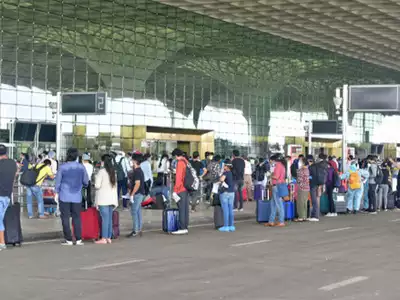Are you planning a trip to India from Belgium or Austria? If so, you’ll want to be sure that you have all the necessary documentation and paperwork in order. In this article, we’ll cover everything you need to know about getting an Indian visa from Belgium or Austria – from the types of visas available to how to apply for them. Read on for more information! Indian Visa from Belgium
Types of Indian Visas
There are many types of Indian visas, each with its own purpose and requirements. The most common type of visa is the tourist visa, which allows you to stay in India for up to six months. If you want to stay longer, you can apply for a business visa or a student visa. There are also work visas and journalist visas.
The requirements for each type of visa vary, but all require a passport that is valid for at least six months from the date of entry into India. You will also need to provide proof of sufficient funds to support your stay in India. For most visas, you will need to submit an application form and supporting documents online. After your application has been processed, you will need to pay the visa fee and schedule an interview at the nearest Indian consulate.
Requirements for Indian Visa
If you are a Belgian or Austrian national, you will need to apply for an Indian visa before travelling to India. The requirements for an Indian visa vary depending on your nationality, the purpose of your visit and the length of your stay. Indian Visa from Austria
Generally, all applicants will need to submit a completed visa application form, along with supporting documents such as a passport photo, proof of travel plans and proof of financial means. You may also be required to provide fingerprints and undergo an interview at the nearest Indian consulate or embassy.
For tourist visas, nationals of Belgium and Austria can apply for a single-entry or multi-entry visa valid for up to 6 months. If you are planning to stay in India for longer than 6 months, you will need to apply for a business visa. For more information on Indian visas, please contact the nearest Indian consulate or embassy.
Process for getting an Indian visa
The process for getting an Indian visa from Belgium or Austria is relatively simple and straightforward. However, there are a few things that you should keep in mind in order to ensure a smooth and hassle-free experience.
First and foremost, it is important to note that all foreigners must obtain a visa before entering India. This applies regardless of the purpose of your visit, be it for tourism, business, or any other reason.
There are two main types of visas that you can apply for – a tourist visa or a business visa. If you are planning to visit India for leisure purposes, then a tourist visa would be the most appropriate option. On the other hand, if you are visiting India for business purposes, then a business visa would be more suitable.
The next step is to determine which category of visa you fall under. For instance, if you are a citizen of Belgium, then you would need to apply for a regular tourist visa. However, if you are a citizen of Austria, then you would need to apply for an e-tourist visa.
Once you have determined the type of visa that you need, the next step is to fill out the online application form. This form can be found on the website of the Indian Embassy in your country of residence. Once the form has been completed and submitted, you will need to pay the applicable visa fee.
After your application has been processed and approved, you will receive an email notification with
Cost of an Indian Visa
An Indian visa from Belgium or Austria costs Rs. 2,500 for a regular visa and Rs. 5,000 for an e-visa. The processing time for a regular visa is 3-4 weeks, while the processing time for an e-visa is 4-5 days.
Conclusion
In summary, Indian visas from Belgium and Austria can be obtained through the online application process. Both countries require applicants to provide proof of identity and residence, as well as other additional documents that may vary depending on their specific visa category. By understanding the requirements for each type of visa, you will be able to apply with confidence knowing that all necessary documentation is in order. In this way, you can make sure your visit to India is a smooth one!
